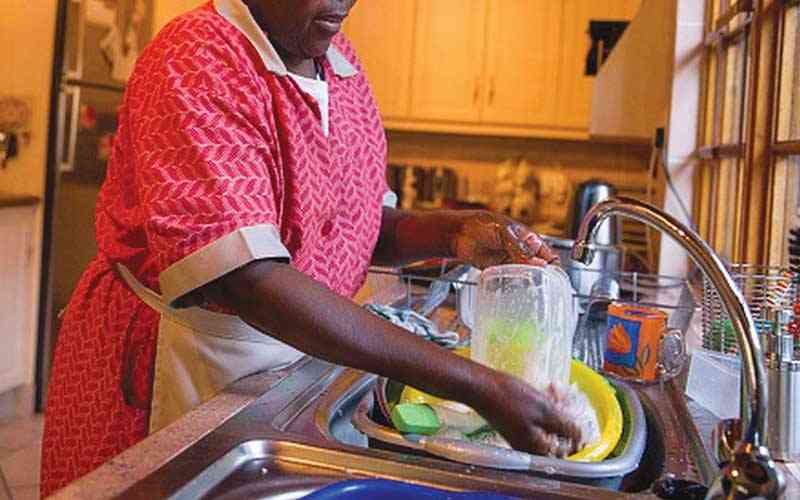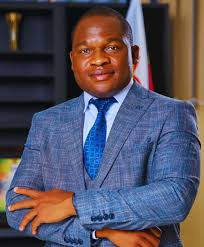
VENDORS Initiative for Social and Economic Transformation (Viset) is part of a steering committee working group on unpaid care and domestic work (UCDW).
The working group is convened by the Women’s Coalition of Zimbabwe in collaboration with Oxfam Zimbabwe. Other members of the working group include PADARE, Shamwari Yemwanasikana, Women’s Academy for Leadership and Political Excellence, Hope for a Child in Christ, Bekezela and Bethany, to mention a few.
Together with the organisations stated above, Viset recently participated in the Parliamentary Public Hearings conducted by the Portfolio Committee on Women’s Affairs, Community Small and Medium Enterprises Development from August 29 to September 2, 2022 on recognising unpaid care and domestic work.
The public hearings sought to find out the specific barriers that UCDW creates for sustainable development in Zimbabwe.
The hearings, the first of their kind, provided a platform for the public to be able to explain to policymakers how investing in quality, accessible and affordable public services and infrastructure in Zimbabwe can address unequal UCDW and unlock progress on multiple Sustainable Development Goals (SDGs).
The first port of call was Marondera, where participants spoke on the need for policies to be changed to ensure they recognise UCDW. Government at all levels was exhorted to support gender-sensitive budgeting.
An improvement in social service delivery would see the lessening of UCDW burden as much time was being lost in queuing for essential needs such as potable water.
The COVID-19 pandemic saw many women saddled with caring for family members, keeping them away from economic activities, and yet they were excluded from any cushioning mechanism.
- Figtree earmarked for smart city status
- Letters: Govt must introduce social safety nets for unpaid care givers
- Transforming Education Summit — the global moment of truth
- Parly starts 2023 pre-budget consultations
Keep Reading
Domboshava Viset co-ordinator Mr Mazhambe emphasised on the need to educate men on the challenges of UCDW and the need to alter some cultural norms that perpetuates suppression of women rights.
Another Viset member Mary Nyadome proposed that as part of their corporate social responsibility, organisations doing work in communities must give back part of their proceeds and resources to support efforts towards UCDW.
The next stop was Mutare, where Women’s Affairs, Community and SMEs Development Parliamentary Portfolio Committee chairperson Chido Madiwa emphasised comprehensive participation by participants.
Solomon Chisoni, a Viset SOCHAMP based in Mutare, urged government to ensure there is modern infrastructure for players in the informal economy, as this will lessen the burden of care work for women informal workers.
He further called for the development of solid social protection systems that protect the vulnerable and ensure that they are protected against corrupt officials.
The scourge of UCDW hits hardest people with disabilities. He also said that policies must be biased towards the disadvantaged and vulnerable. Financial inclusion is a tool to lessen the burden of UCDW.
Women who get financial support have better chances of being productive even when they are playing the dual roles of UCDW and informal work. The issue of drug abuse, especially among young people, was discussed strongly.
There was also the added layer of burden to women who take care of young people who are falling sick because of dangerous drugs. A female participant called for policies that support the participation of women in governance and political processes.
Masvingo edition of the hearings saw participants urge government to construct infrastructure that caters for people with disabilities as a way of reducing the impact and burden of unpaid care work, especially for informal economy workers.
There was a call for social grants to women since they spend most of their time looking after children. These funds can be used to progressively change the lives of women at all levels.
The Public Service, Labour and Social Welfare ministry was urged to urgently address domestic worker salaries and women in the agricultural sector as they were at criminally low levels.
Madida Madida, a human rights defender based in Masvingo, lamented the lack of a comprehensive social protection system in Zimbabwe.
He added that SDGs can only be met if unpaid care work is recognised and rewarded. He also called for the need to modernise health facilities, particularly in rural areas where the majority reside.
In Bulawayo, participants from Matabeleland North province said people struggle to access basic health services and this has a heavy bearing on women who fail to do other productive initiatives as they focus on things that must be provided for by central government and local authorities.
There was also a call for domestic workers to be recognised as key carers who are mostly underpaid, with no social security or compensation when injured at work. A student proposed a radical transformation of the education system so that it embraces the historical imbalances and pave way for tailor made interventions to support young people and women.
The burden of taking care of the sick impacts on the level of productivity for women informal economy workers and the Finance ministry through the national budget was urged enact interventions to address this challenge at all levels.
The last stop of the public hearings was in Gweru, where a call was made to put in place social grants that support the vulnerable, especially women. Participants also said that there was a connection between lack of social service delivery and the increase in unpaid care work.
Women spend time on chores such as looking for water and firewood at the expense of engaging in productive work that improves their lives. - Viset
Zimbabweans in the diaspora must fight for their voting rights
ZIMBABWEANS in the diaspora must fight for their right to vote and must lobby their families who depend on them for survival, and the businesses they do business with, to push for the diaspora vote in 2023.
If President Emmerson Mnangagwa is genuine, he should support the action by the diaspora to push his thick-headed colleagues in Zanu PF and the Zimbabwe Electoral Commission to respect the diaspora vote.
Zanu PF officials who are making relentless efforts to block the diaspora vote must know that elections without the diaspora vote will be disputed.
Diasporans contribute immensely to the country’s economy, as has been acknowledged by Zanu PF spokesperosn Christopher Mutsvangwa, Mnangagwa himself as well as Finance minister Mthuli Ncube.
Why not give those people who contribute so much to the economy their right to vote?
Zimbabweans in the diaspora, please demand what is yours by right. - Kennedy Kaitano
Open letter to President Mnangagwa
DEAR President Emmerson Mnangagwa,
We appeal to the International Criminal Court (ICC) to officially either serve you summons or issue a warrant of arrest or proceed to apprehend, interrogate and prosecute you on applicable legal criteria on September 13, 2022 during the 77th Session of the United Nations General Assembly in New York on charges ranging from a coup d’etat, mass genocide, torture, abductions, rape, with counts dating back to 1983, with redundant commissions of inquiry, whereas gross violations of human rights, including failure to uphold the rule of law and defeat to the course of justice, have been cited.
Mr President Sir, we declare a Freedom Charter in Zimbabwe comparable to the one adopted on June 26, 1955 by South Africa.
Your resignation will not be a waiver for your crimes, but honour to founding fathers and heroes whose legacy you have massacred. We call for your impeachment by Parliament or recall by Zanu PF.
Mr President Sir, you have shown gross incapacitation and incompetence since 2017 with empty hollow speeches, looting as well as turning a blind eye to cartel deals worth millions of United States dollars with zero proceeds to the Treasury.
There is no second republic, but rise of the 5th Chimurenga. There is no economic independence. “Born frees” are now being declared comrades of their generation.
Please recall your Zanu PF ambassador to South Africa and seek guidance from those who commenced the diplomatic relations.
Clearly as Head of State, you failed to dialogue with your counterpart in South Africa or address the xenophobic attacks/permit issues on Zimbabweans, yet you are showing an appetite of wanting to manipulate elections.
On August 26, 2022, an open letter was sent to the Republic of South Africa, with emphasis placed on the neighbouring country not to harass Zimbabweans using colonial and apartheid tactics so as to maintain diplomatic relations and promote peace.
The South African government has been grateful to us. Now it has extended Zimbabwe Exemption Permits to June 2023, probably hoping for a new government in Zimbabwe.
We request that a voluntary repatriation exercise commence, with 200 buses waiting to assist, plus free duty to all returning residents and allowances.
Normal permits/visas should be processed as per norm. Refugee/political asylums should be granted to Zimbabweans remaining in South Africa, including such passports in terms of Refugee Act 1998, 1951 UN Convention on Refugees Act, 1969 OAU Convention, 1967 Protocol, 1993 basic agreement between the government of South Africa and United Nations High Commissioner for Refugees, including the Immigration Act of South Africa.
Mr President Sir, Parliament should be dissolved and Senate abolished respectively as they serve a ceremonial role with POLAD now doing the policymaking duties. Electoral reforms ahead of the 2023 elections should go through a referendum.
Sadc polling stations are a must including diaspora vote/registration. No political dialogue or government of national unity is acceptable come 2023. Securocrats are there to defend the Constitution of Zimbabwe and ensure a peaceful transition and transfer of power. - Zvaringeni Samuel Chasi, Patriotic Party Zimbabwe president







